The Top 7… 'Whoops, you're evil!' moments
A celebration of the games that turned good guys into unwitting villains
Stripped down to the bone, most videogames are about running errands: go here, kill that thing over there, bake a cake. There’s almost always a clear justification for them – save the world, get revenge, etc. – but usually, the real reason you do these things is simply because the game told you to. But can the game be trusted? Are you fighting for the right side? How can you be sure?
Over the years (and especially in recent ones), a handful of games have tried to make the point that blindly following directives isn’t always the best course of action, even when it’s the only one available. One minute you’ll kill your way through what you think are a group of terrorists (for example), and the next you’ll find out that they were the ones trying to save the world, not you. Suddenly you’re the unwitting villain, duped by the game, and if you’re lucky you might get a chance to redeem yourself. When done right, these twists can make for a powerful moment; here are some of the most memorable.
Do we even need to mention that the following is FILLED WITH MAJOR SPOILERS?

What you thought you did: Waged war against a cannibalistic dictator responsible for ethnic cleansing and known for wearing a coat made from the skins of his enemies.
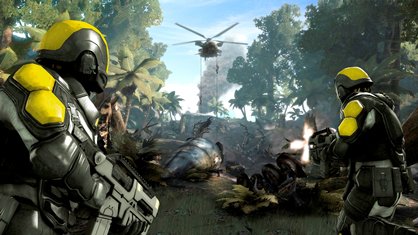
What you actually did: Oppressed the hell out of some Latin American farmers because your employer wanted a monopoly on a plant they were growing.
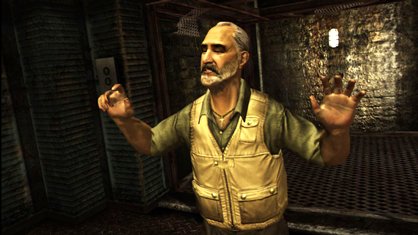
Wait, what!? Of all the games on this list, Haze’s side-switching plot twist was the least surprising. Ignoring the fact that it was advertised right there on the back of the box, the game dropped a steady supply of unsubtle hints that you were in the wrong: you and your squadmates (all of whom were insufferable fratboy douchebags) wore faceless stormtrooper armor and fought for a corporate army. You were dosed up with a supersoldier drug called Nectar, which would wear off at key moments, replacing your colorful, bloodless view of the battlefield with horrific vistas of murdered civilians and screaming wounded. And you never really seemed to have a clear idea of why, or even what, you were fighting.
But while your character had doubts, he wasn’t convinced of the wrongness of his actions until he’d captured the “dictator” - who turned out to be a kindly old man in a cotton vest, named Merino - and watched as his psychotic squadmates laughed and dismembered Merino for fun.
Sign up to the GamesRadar+ Newsletter
Weekly digests, tales from the communities you love, and more
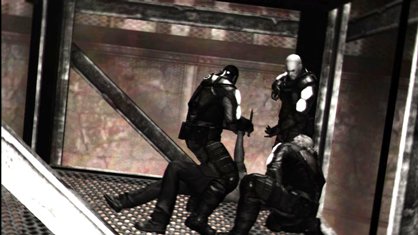
Long story short, the protagonist tries to intervene, the chopper he and his buddies are riding crashes, and the squad is rescued from the wreckage by Merino and his rebel fighters. Once everyone’s back on their feet, you’ll understand the full hallucinogenic effects of Nectar, as your former buddies go from this…
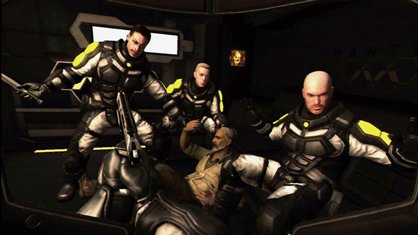
Above: As seen under Nectar’s influence
To this:
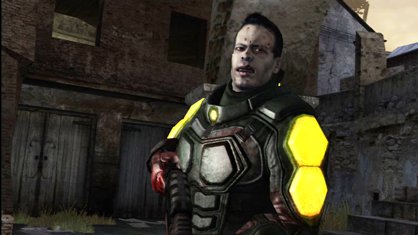
Above: Note the bloodstained gloves, sunken eyes and severe drug addiction
But kill-crazy squadmates and sympathetic rebels are just the beginning, and after you switch sides you’ll learn that Mantel, the corporation pulling your strings, has covered up the fact that prolonged Nectar use has killed tons of its troops. Worse, the only reason it went to war with whatever Spanish-speaking country you’re in was because the natives were harvesting the plant Nectar came from, and Mantel wanted a monopoly.
Being a satire of videogame conventions, and of gamers’ willingness to play as faceless goons who kill everything that moves for flimsy reasons, Haze couldn’t just let you off the hook once you’d crushed your former employer. Instead, after you’d diligently followed Merino’s orders, it was revealed that he was about to use Nectar for his own ends, and would probably become just as evil and psychotic as the Mantel troopers you’d been fighting. Because the lesson here is that war is futile, those in power tend to abuse it and gullible dumbasses with no clear convictions probably shouldn’t sign up to fight in wars.
Not that anyone played Haze long enough to find that out, of course.



